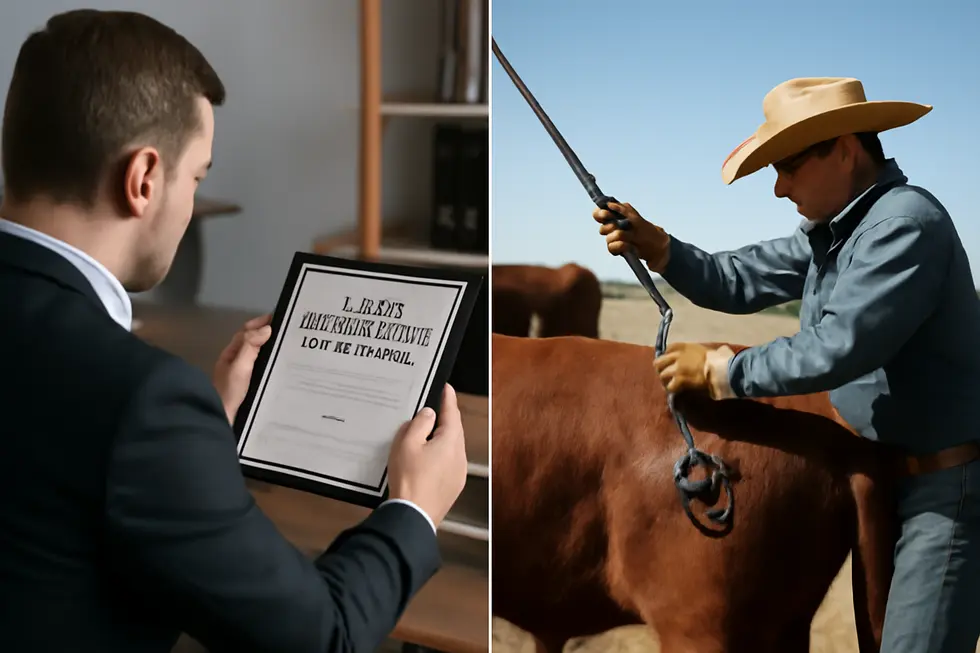Introduction
Registering a brand in California involves multiple distinct processes depending on the nature of your business and industry. From securing your business name to trademarking your brand identity, registering livestock brands, or complying with franchise and packaging producer regulations, each registration type plays a critical role in protecting your business interests. Understanding the requirements and agencies involved helps business owners confidently navigate California’s regulatory landscape. This comprehensive guide breaks down the key registration paths: first, the essentials of business name registration; next, the dual focus on state trademarks and livestock brands; and finally, the specifics of franchise registration and compliance with packaging laws. Together, these chapters provide a holistic view of how to safeguard and legitimize your brand presence in California.
Tables of Contents
Chapter 1: Business Name Registration Foundations in California Brand Registration
- Navigating Legal Criteria and Filing Procedures for Business Name Registration in California
- Unlocking the Role of DBA Registration in California Business Name Branding
- Navigating Trademark Registration for Effective Brand Protection in California Business Name Registration
Chapter 2: State Trademark and Livestock Brand Registration: Navigating California’s Regulatory Landscape
- Legal Nuances and Technical Essentials of California’s State Trademark and Livestock Brand Registration
- Navigating Economic Benefits and Legal Protections of California State Trademarks and Livestock Brands
- Balancing Rural Heritage and Urban Innovation: Societal and Geopolitical Dimensions of California’s Trademark and Livestock Brand Registration
Chapter 3: Navigating Franchise Compliance and Producer Registration in California’s Packaging Laws
- Understanding Producer Registration and Reporting under California’s Packaging EPR and Franchise Regulations
- Critical Reporting Obligations and Timelines for Franchise and Packaging Producer Registrations in California Brand Registration
- Environmental and Regulatory Demands on Brands and Franchises under California’s Packaging Producer Registration
Chapter 1: Business Name Registration Foundations in California Brand Registration

1. Navigating Legal Criteria and Filing Procedures for Business Name Registration in California
Registering a business name in California requires a careful understanding of both legal requisites and procedural steps to ensure compliance and protect your brand. Central to this process is establishing a unique and compliant name that stands distinct within the California business landscape. The name must not only avoid duplication but also remain clearly distinguishable from other registered entities. Small differences such as punctuation or articles do not qualify a name as different. Moreover, certain terms related to banking, insurance, or governmental functions are either highly regulated or prohibited without special permission.
For limited liability companies (LLCs), the registered name must incorporate an approved designator like “LLC,” “Limited Liability Company,” or similar abbreviations. This labeling clarifies the legal structure of the business to the public and regulators. Corporations must similarly ensure their names comply with statutory rules preventing misleading implications. Religious nonprofits enjoy slightly broader naming flexibility but still cannot infringe on existing names.
A critical early step for prospective business owners is performing a comprehensive name availability search. California’s Secretary of State offers a Business Search tool to identify current registered names that might conflict. Parallelly, conducting a federal trademark search is advisable to avoid infringing on protected marks, which could cause costly legal disputes later. Reserving your preferred name is an available option; filing a Name Reservation Request Form secures the right to that name for 60 days, typically at a minimal cost. This reservation allows time to prepare incorporation or formation documents without risk of losing the name.
When forming an LLC, additional procedural requirements arise. A registered agent with a California physical address must be appointed to accept legal documents. The Articles of Organization (Form LLC-1) then formalize the entity’s creation, incorporating essential information such as name, address, and management structure, subject to a filing fee. To maintain transparency, an Initial Statement of Information (Form LLC-12) must be submitted within 90 days of formation, updating contact details and organizational data, also accompanied by a fee.
Though not mandated by filings, drafting an Operating Agreement is strongly recommended. This internal document delineates ownership roles, operational procedures, and fiduciary duties. It safeguards limited liability protections and fosters clear governance to prevent disputes.
For corporations and nonprofits, preparation and filing of Articles of Incorporation play a similar foundational role. These documents must adhere strictly to naming conventions and descriptive accuracy to avoid misrepresentation.
Thorough upfront research and use of official state resources mitigate risks of rejected filings or costly rebranding. Early reservation of business names coupled with legal compliance lays a strong foundation for your California brand identity.
For deeper guidance on compliance with California’s corporation naming rules, you can consult this authoritative resource.
2. Unlocking the Role of DBA Registration in California Business Name Branding
DBA Registration as a Vital Component of Business Name Registration in California
When establishing a brand identity in California, registering a “Doing Business As” (DBA) name plays a crucial role for many businesses. Often referred to as a fictitious or trade name, the DBA allows companies or sole proprietors to operate under a name different from their officially registered legal entity. Unlike the formal business name registered with the California Secretary of State for corporations or LLCs, the DBA is generally filed at the county level where the principal business location lies. This registration satisfies California’s legal requirements and helps businesses create distinctive brand identities within the state’s competitive market.
Filing a DBA is essential for legal compliance because California law mandates it when businesses conduct operations under alternate names. By registering a DBA with the county clerk’s office, a business publicly notifies the community and potential customers about the true ownership behind the trade name. This transparency prevents confusion and allows consumers to identify the responsible parties behind a given brand or storefront. The public notice aspect is a foundational element ensuring accountability in commercial transactions.
Beyond legal necessity, DBAs play a strategic branding and marketing role by enabling businesses to select catchy, memorable, or industry-specific names without going through the expense and complexity of forming new legal entities. This flexibility supports ventures such as solo entrepreneurs wishing to establish a professional facade, companies branching into different product lines, or firms aiming to test new markets under alternative brand identities. The DBA name can appear on signage, advertising, websites, and customer-facing materials, giving businesses a valuable tool to customize their public image.
DBA registration also facilitates essential business operations. With an official DBA on file, companies can open bank accounts, sign contracts, and enter financial agreements under the registered trade name, rather than their legal entity name. This development often simplifies bookkeeping and customer interaction, reinforcing the business identity established through branding efforts.
However, it is important to understand the limits of DBA registration. Filing a DBA does not create a separate legal entity nor confer trademark rights. The legal liability remains entirely with the underlying business or individual owner. For businesses seeking exclusive rights over their brand name and broader protections beyond local markets, formal trademark registration at the state or federal level is recommended. State trademark registration secures priority within California, while federal registration via the United States Patent and Trademark Office grants nationwide protections and enforcement mechanisms. This layered approach to brand protection ensures compliance and amplifies intellectual property security.
Given the complexities involved in naming strategies, it is advisable for business owners to verify name availability through state tools and consider pursuing trademark protections alongside their DBA registrations. A balanced brand strategy employs both DBA filings for local legal compliance and trademark registrations for intellectual property safeguarding. Those planning to expand outside California or seeking national recognition should especially evaluate federal trademark registration options.
For a deeper understanding of trademark needs and their interplay with business names and DBAs, exploring resources like do I need a trademark for my business can provide valuable guidance.
Source: https://www.marketing91.com/doing-business-as-dba/
3. Navigating Trademark Registration for Effective Brand Protection in California Business Name Registration
When registering a business name in California, securing trademark protection is a vital step to safeguard your brand identity. Trademark registration offers legal recognition and helps prevent others from using a similar name or logo within the competitive marketplace. In California, entrepreneurs can choose between state-level trademark registration through the California Secretary of State’s office and federal registration with the United States Patent and Trademark Office (USPTO). Each option provides distinctive benefits and limitations that are important to understand.
State trademark registration is generally quicker and less expensive, making it an attractive option for businesses primarily operating within California’s borders. This registration records your mark’s first use date and establishes priority rights within the state. However, it does not provide exclusive nationwide rights, nor does it enable enforcement beyond California’s limits. Moreover, state registration does not confer the right to use the ® symbol, which signifies federally registered trademarks. Despite these constraints, state registration bolsters your defence against local infringement and provides public notice of your brand’s claim.
To apply for state trademark registration, business owners must conduct a thorough name search to ensure the mark is distinctive and not already in use. The California Secretary of State offers an online database for searching registered trademarks. Once satisfied, applicants file the necessary forms, pay relevant fees, and await approval. This process tends to be faster than federal registration, typically taking a few months.
On the other hand, federal trademark registration grants comprehensive protection across the entire United States. It offers exclusive use of the mark in connection with specified goods or services and stronger legal remedies against counterfeiters and infringers. The registration process involves a detailed search using the USPTO’s Trademark Electronic Application System (TEAS), submission of specimens demonstrating commercial use, and an examination period that can last from 12 to 18 months. Afterward, the mark is published for opposition, allowing third parties to contest the registration before final approval.
Federal registration also permits the use of the ® symbol, which serves as a public declaration of federally protected trademark rights. This status greatly strengthens enforcement options in federal courts and helps deter unauthorized use. For businesses planning to expand nationwide or secure robust brand protections, federal registration is highly recommended.
It is important to recognize that common law trademark rights arise automatically through actual use in commerce, even without registration. However, these rights are geographically limited and generally more difficult to enforce than registered trademarks. Combining state business name registration with a federal trademark registration strategy offers the most effective legal shield for your brand.
Entrepreneurs should pursue state trademark registration initially to establish local rights and then advance toward federal registration for nationwide protection. This layered approach ensures your business name enjoys recognized priority dates and maximal enforcement capabilities.
For those considering whether to register a trademark at all, understanding these dynamics is crucial. This resource on whether you need a trademark can guide business owners through the decision-making process.
For further details on state versus federal registration nuances and steps, the California Secretary of State’s guidelines and USPTO’s official website provide comprehensive assistance and forms to streamline the trademark registration journey.
Chapter 2: State Trademark and Livestock Brand Registration: Navigating California’s Regulatory Landscape

1. Legal Nuances and Technical Essentials of California’s State Trademark and Livestock Brand Registration
California’s approach to brand registration under state trademarks and livestock brands reflects a tailored legal and technical framework aimed at meeting distinct commercial and agricultural needs. Registering these brands requires adherence to specific procedures and regulations governed by varying authorities, ensuring clarity of ownership and protection within the state.
For state trademark registration, the process hinges on filing with the California Secretary of State. Applicants must submit a detailed application form, accompanied by a specimen or clear drawing of the trademark. Crucially, the mark must be in actual use in commerce within California prior to filing, underscoring the state’s emphasis on active commercial engagement rather than prospective claims. Upon registration, the mark gains statewide priority rights and is publicly recorded, serving as valuable evidence in legal disputes regarding trademark infringement. However, while it offers definite protection within state boundaries, this registration does not extend federal privileges such as customs enforcement or exclusivity outside California. This state-focused scope makes the process more streamlined and cost-effective compared to federal registration, but businesses seeking a broader shield must consider federal trademark registration separately.
In contrast, livestock brand registration addresses practical ownership identification and theft prevention within the agricultural sector. Registered not at the state capital but through local county agricultural commissioners, these brands are distinctive physical marks burned or otherwise affixed onto animals like cattle, horses, sheep, and goats. The legal requirement to publicly advertise the chosen brand prior to registration promotes transparency and prevents duplication, ensuring each brand uniquely identifies an owner’s livestock. The application process demands a unique brand design, formal submission, and applicable fees. This system plays a critical role in combating animal theft by offering a visibly enforceable claim to ownership under state statutes.
Legally, state trademark registration serves commercial identity by protecting brand names and logos used for marketing goods or services exclusively within California. It grants exclusive rights that can be enforced in state courts but does not impinge upon similar marks registered federally or in other states. Livestock brand registration, however, deals with a physical, tangible form of branding tied directly to the animal itself, intertwining with agricultural law aimed at property protection on the range.
Businesses considering brand protection should weigh these distinctions carefully. While trademarks safeguard intellectual property and commercial goodwill, livestock brands ensure practical property security in farming contexts. The respective registration bodies—the California Secretary of State for trademarks and county agricultural offices for livestock brands—offer clear paths tailored to each need.
For entrepreneurs and ranchers alike, understanding these regulatory nuances is vital to ensure compliance and maximize the benefits of registration. Detailed procedures, application requirements, and resources are available through the official California Secretary of State website for trademarks and local county agricultural commissioner offices for livestock branding.
This framework effectively balances technical documentation with legal protections, addressing the unique demands of business identity and agricultural property rights within California’s diverse economic landscape.
2. Navigating Economic Benefits and Legal Protections of California State Trademarks and Livestock Brands
California’s system for registering state trademarks and livestock brands offers distinct economic advantages and legal safeguards that cater to local businesses and ranchers. These registrations serve as vital tools for protecting valuable brand identity and ownership within the state’s jurisdiction, providing a streamlined, cost-effective alternative to federal registration options.
One of the primary economic incentives for utilizing California’s state-level trademark and livestock brand registration lies in their affordability and expedited processing time. Compared to federal registration, which requires a higher filing fee and a more complex review process, state registration is significantly less expensive and can be completed faster. This makes it particularly appealing for small businesses or local ranchers keen to establish recognized brand identity quickly without overextending their budget.
For California-based companies focusing on in-state markets, the state trademark registration delivers exclusive rights to use a particular mark throughout the state. Affirming this exclusivity helps prevent brand confusion and fosters consumer trust, which is crucial for commerce within California’s sizable economy. While these rights do not extend beyond California’s borders, they provide a solid foundation for businesses primarily rooted in the state.
Livestock brand registration plays a particularly important economic role in California’s ranching sector. Each registered brand functions as a unique identifier for range livestock, serving as legal evidence of ownership. This registration reduces the risk of animal theft and disputes by providing clearly documented and publicly recognized marks. The assurance that comes with official brand registration can enhance the market value of livestock assets and encourage smoother transactions.
Legally, state trademark and livestock brand registrations confer enforceable rights throughout California. Registered owners can bring infringement claims in state courts and employ the registration as proof of ownership. However, without the benefits of federal registration, California registrants cannot use the ® symbol, but may use TM or SM designations to signal their claim to the mark.
There are important limitations to consider. State registrations apply strictly within California, lacking the nationwide protection available through federal trademarks. They offer weaker presumptions of ownership and provide limited legal remedies compared to federal registrations, which include enhanced damages and customs enforcement to stop counterfeit goods at the border. Thus, businesses planning expansion beyond California may ultimately require federal trademark protection.
In summary, California’s state trademark and livestock brand registration frameworks equip local businesses and ranchers with practical legal and economic tools tailored for in-state commerce. These registrations reduce costs, speed up protection, and safeguard valuable brand assets, while acknowledging the geographic scope and enforcement differences inherent to state-level versus federal intellectual property registration.
For those considering how to protect their business identity further, understanding the distinct advantages of state trademark registration—as well as when federal registration is needed—is essential. Detailed guides and resources can assist in navigating these choices and managing brand protection effectively within California’s unique legal landscape.
Learn more about trademark needs for your business
Reference: https://www.legalzoom.com/articles/state-trademark-or-federal-trademark-which-one-is-right-for-you
3. Balancing Rural Heritage and Urban Innovation: Societal and Geopolitical Dimensions of California’s Trademark and Livestock Brand Registration
California’s approach to state trademark and livestock brand registration reflects a nuanced interplay of societal values, economic interests, and geopolitical realities. These registrations serve distinct yet interconnected purposes across rural and urban settings, shaping identity, property rights, and commerce in diverse ways.
Livestock brand registration is deeply rooted in California’s rural heritage, acting as a fundamental mechanism to establish clear ownership of range livestock. By mandating that brands be registered publicly and applied in regulated locations on the animal, the system safeguards ranchers against theft and misidentification. This legal framework supports the economic vitality of rural communities dependent on livestock, providing an enforceable property right that integrates with broader animal health and movement regulations. As livestock frequently cross state boundaries, official branding facilitates disease control efforts and strengthens trade cooperation between states by ensuring traceability and regulatory compliance.
On a broader stage, California’s livestock branding plays into international agricultural trade considerations. Origin and health certifications tied to branding influence export market access, reflecting geopolitical sensitivities. For example, trade agreements such as the UK-US partnership underscore the significance of clear branding and certification in smooth agricultural commerce, where adequate recognition of origin marks and animal health documentation is crucial.
Contrasting with rural branding, trademark registration in California’s urban centers—especially innovation-driven regions like San Francisco—centers on intellectual property protection amidst intense business competition. Here, trademarks represent vital intangible assets that embody company reputation, market differentiation, and creative innovation. Unlike livestock branding’s physical marking, trademarks encompass names, logos, and symbols strategically registered to preserve exclusivity and manage conflicts within a dense marketplace. The complexity of urban trademark registration often involves layered federal and state legal frameworks, with businesses needing to conduct comprehensive searches and navigate enforcement challenges to secure their brand identities effectively.
Together, these two brand registration forms reveal California’s broader sociopolitical landscape: one grounded in preserving traditional property rights to sustain agricultural livelihoods, the other driving protection of innovative enterprise branding in competitive urban environments. Both depend on effective regulation and cooperation—whether among state agencies overseeing livestock and animal health or legal institutions mediating trademark conflicts.
The intersection of rural and urban branding practices in California illustrates a dynamic regulatory ecosystem shaped by geographic, economic, and geopolitical forces. This ecosystem ensures that California’s diverse industries—from ranchers managing physical herds to startups cultivating intellectual properties—are empowered with protections tailored to their distinct contexts. Understanding these societal and geopolitical dimensions is essential for comprehending how California’s brand registration systems safeguard ownership, support commerce, and align with interstate and international standards.
For those interested in further exploring how trademarks function within California’s competitive business environment, additional insights can be found in resources like trademark2go.com.
For detailed information on livestock brand recording procedures, the California Department of Food & Agriculture (CDFA) provides comprehensive guidance: https://www.cdfa.ca.gov
Chapter 3: Navigating Franchise Compliance and Producer Registration in California’s Packaging Laws

1. Understanding Producer Registration and Reporting under California’s Packaging EPR and Franchise Regulations
California’s producer registration requirements under its packaging laws take center stage in the state’s ambitious strategy to reduce packaging waste and enhance environmental responsibility. Governed primarily by Senate Bill 54—known as the Plastic Pollution Prevention and Packaging Producer Responsibility Act—this framework mandates that all producers placing single-use packaging into the California market must register with the Circular Action Alliance (CAA), the state’s designated producer responsibility organization (PRO). This requirement applies regardless of prior registration status, with a critical deadline set for September 5, 2025.
The purpose of this extended producer responsibility (EPR) program is to shift accountability upstream to producers, ensuring that those who design, sell, or distribute packaging actively participate in waste reduction efforts. Producers can select between two compliance pathways: opting for PRO Reporting, where the CAA manages regulatory submissions to CalRecycle on behalf of producers, or pursuing Self-Reporting, where producers handle direct reporting to both CalRecycle and the CAA themselves. The PRO Reporting option is widely recommended for simplifying the compliance burden, consolidating data collection, and providing a unified reporting front.
Alongside the registration, producers are obligated to provide detailed supply chain data by November 15 each year. This data collection reinforces transparency and facilitates California’s broader environmental goals by informing waste management strategies and regulatory oversight. The structured timeline prioritizes early registration to allow stakeholders adequate time for subsequent reporting and compliance steps under the EPR program.
It is important to distinguish these packaging-related producer registration requirements from franchise brand registration, which operates under a different legal and administrative framework. Franchising in California is governed by the California Department of Financial Protection and Innovation (DFPI) and focuses on trademark protection, licensing, and business operations rather than environmental compliance. Franchise registration centers on filing Franchise Disclosure Documents (FDDs), detailing financial audits, contractual terms, and other disclosures with an approval timeline that typically ranges from eight to twelve weeks.
While franchise brand registration seeks to safeguard brand identity through control mechanisms and licensing agreements, it does not overlap with the environmental stewardship goals embedded in the packaging EPR laws. Franchise arrangements focus on intellectual property rights and ongoing business relationships rather than packaging waste management.
This bifurcation in regulatory focus highlights the complexity of “California brand registration” as a term that spans diverse domains. In the context of packaging, the emphasis is on sustainability and producer responsibility under Senate Bill 54, facilitated through registration with the CAA. Conversely, franchise and trademark registrations address business identity and legal protections, handled through separate channels emphasizing brand integrity rather than environmental obligations.
For businesses navigating these requirements, recognizing this distinction is crucial to meet obligations effectively. Registration with the Circular Action Alliance ensures compliance with California’s packaging laws, while meeting franchise registration mandates preserves legal rights and operational legitimacy for franchise systems.
For additional guidance on protecting your business identity amid these various registration requirements, exploring insights at trademark2go.com can offer valuable perspectives.
2. Critical Reporting Obligations and Timelines for Franchise and Packaging Producer Registrations in California Brand Registration
Within California’s framework for brand registration, compliance with reporting and timely submissions is essential for both franchise businesses and packaging producers under extended producer responsibility (EPR) laws. These obligations reflect California’s comprehensive efforts to enforce environmental accountability alongside established tax regulations.
Producers subject to the EPR mandate must register either directly with CalRecycle or through a certified Producer Responsibility Organization (PRO). This registration, mandatory by July 1, 2025, applies to most packaging producers, excluding certain de minimis exemptions. The registration process is not a one-time task; it requires ongoing diligence to accurately report all packaging materials introduced into the California market. Maintaining meticulous records and submitting timely, precise data ensures compliance and helps avoid steep penalties or enforcement actions for late or incorrect filings.
Concurrently, franchise entities operating in California must engage with the Franchise Tax Board (FTB) regarding their annual tax obligations. This includes paying a minimum franchise tax fee set at $800, which is distinct from income or sales tax liabilities. The initial payment is due three to four months post entity formation, followed by recurring payments each April 15. Compliance with these deadlines is fundamental to avoiding legal or financial repercussions.
The regulatory landscape for these requirements is deeply interconnected. The definition of “doing business in California” used by the Franchise Tax Board closely matches standards employed by other agencies including CalRecycle and the California Air Resources Board (CARB). This alignment creates consistent revenue and operational thresholds that directly shape the scope of registration and reporting duties. Businesses active in California must, therefore, assess their activities comprehensively to determine the full extent of their filing obligations.
These layered requirements underscore the importance of proactive management. Companies should seek qualified legal or regulatory guidance to navigate the nuances of California’s packaging and franchise registration statutes. Staying current with agency updates and evolving compliance standards strengthens a business’s ability to meet deadlines and accurately report data.
Attention to detailed recordkeeping not only facilitates smoother regulatory interactions but also empowers businesses to support California’s environmental goals through effective participation in the EPR system. Understanding both tax and packaging compliance dimensions forms a critical part of successful brand registration and ongoing operation within the state.
For further insights on these reporting duties and upcoming deadlines, refer to detailed compliance guidance on packaging EPR deadlines. Businesses exploring comprehensive brand protection strategies in California may also find it helpful to learn about trademark needs through resources like this guide to trademark registration.
3. Environmental and Regulatory Demands on Brands and Franchises under California’s Packaging Producer Registration
California’s evolving packaging laws impose significant responsibilities on brands and franchises operating in the state, particularly those that qualify as “producers” under the Extended Producer Responsibility (EPR) program. This framework requires entities placing packaged products into California’s market to undertake formal registration, accompanied by ongoing reporting and fee obligations. The goal is to incentivize sustainable packaging design and ensure accountability for environmental impacts.
Under the EPR program, brands and franchises meeting the producer definition must register by statutory deadlines, such as July 1, 2025. Registration is not merely a bureaucratic formality; it demands transparent disclosure of packaging materials and collective compliance with stringent reporting standards. This often includes determining multistate obligations if the brand or franchise operates beyond California’s borders, compelling entities to navigate an interconnected web of state regulations. Exemptions exist—for instance, minimal-volume producers may qualify as de minimis—but careful assessment is required to confirm eligibility.
Once registered, producers face ongoing compliance duties. They must submit detailed data about the type, weight, and recyclability of packaging materials utilized in their products. These reports feed into a statewide recycling ecosystem that relies on Producer Responsibility Organizations (PROs) to orchestrate material collection and processing. Participation in or self-reporting under a PRO is essential, making producers active partners in California’s circular economy objectives.
Financially, the EPR program’s fee structure is closely tied to packaging sustainability metrics. Packaging that is easier to recycle or made from environmentally preferable materials generally results in lower fees. As a consequence, brands and franchises are increasingly motivated to rethink and optimize packaging design, aligning product presentation with ecological stewardship. This intersection of regulatory compliance and environmental strategy shapes business decisions, forcing brands to balance marketing, cost, and sustainability considerations innovatively.
Parallel to EPR obligations, franchised entities conducting business in California must also address the state’s minimum $800 annual franchise tax. Although unrelated to packaging registration, this tax contributes to the overall fiscal landscape for franchises and serves as a reminder of California’s multifaceted regulatory environment.
For franchises that license their brand for packaged goods, understanding how licensing arrangements interface with producer status is critical. Licensed products bearing the brand may subject licensors or licensees to registration requirements depending on their role in product distribution. Strategic structuring of these relationships can mitigate unintended compliance exposure while protecting brand integrity.
Given these complexities, brands and franchises benefit from proactive legal and regulatory counsel to navigate registration timelines, reporting standards, and fee assessments. Early preparation minimizes risk of penalties and positions businesses to leverage compliance as a competitive advantage in California’s environmentally conscious market.
For those looking to understand broader aspects of brand protection and registration in California, including trademark considerations relevant to packaging and product branding, consulting resources on state trademark registration provides valuable insights.
More detailed guidance on producer registration obligations and compliance frameworks under California’s EPR laws can be found on the Circular Action Alliance website: https://circulareconomyalliance.org/producer-registration.
Final thoughts
California brand registration is a multifaceted process shaped by the specific industries and business structures involved. Securing a unique business name establishes your foundation, while state trademark and livestock brand registrations build legal protections catering to commercial and agricultural enterprises alike. For franchise businesses and packaging producers, navigating regulatory filings under the DFPI and Circular Action Alliance further refines your brand’s legal compliance. Together, these distinct pathways encompass the diverse landscape of California brand registration. By understanding and strategically approaching each registration type, business owners can safeguard their intellectual property, optimize market presence, and foster long-term success within California’s robust legal environment.
Your IP is the foundation of your success – let’s protect it together before it’s too late. We can’t wait to help you turn your ideas into legally secured assets.
About us
At trademark2go.com, we’re your go-to partners for simplifying trademark, patent, and copyright registration. Our team of IP experts cuts through legal complexity, avoids common pitfalls, and delivers personalized guidance – whether you’re a startup, inventor, or creator. We prioritize your goals, turning your ideas into legally secured assets with clarity and care. Let’s protect what drives your success, together.


